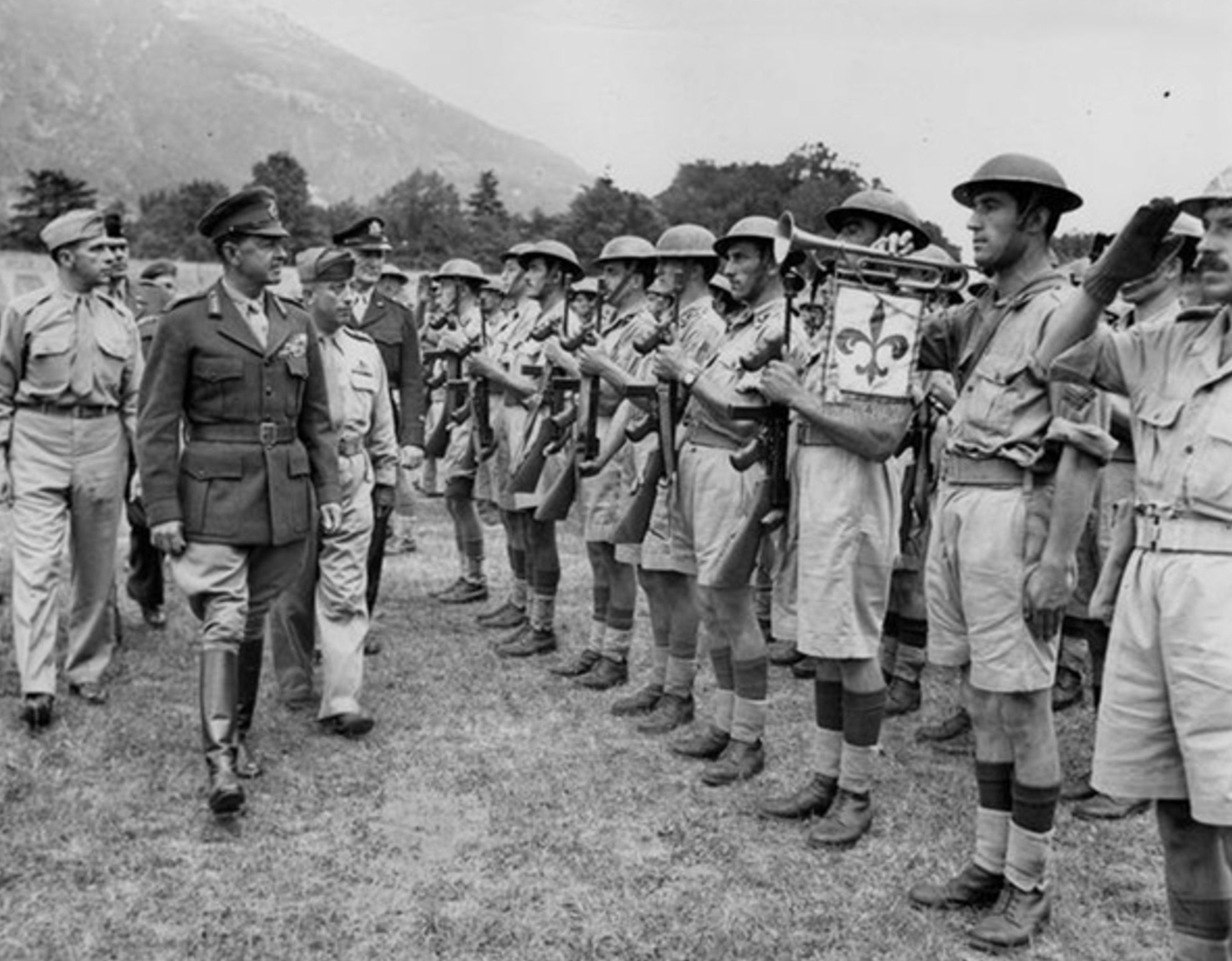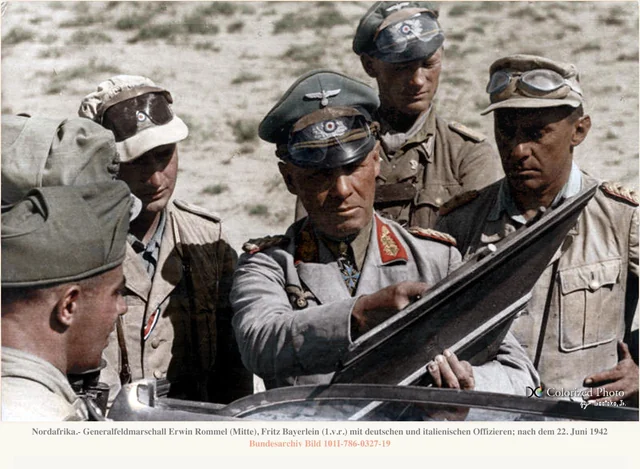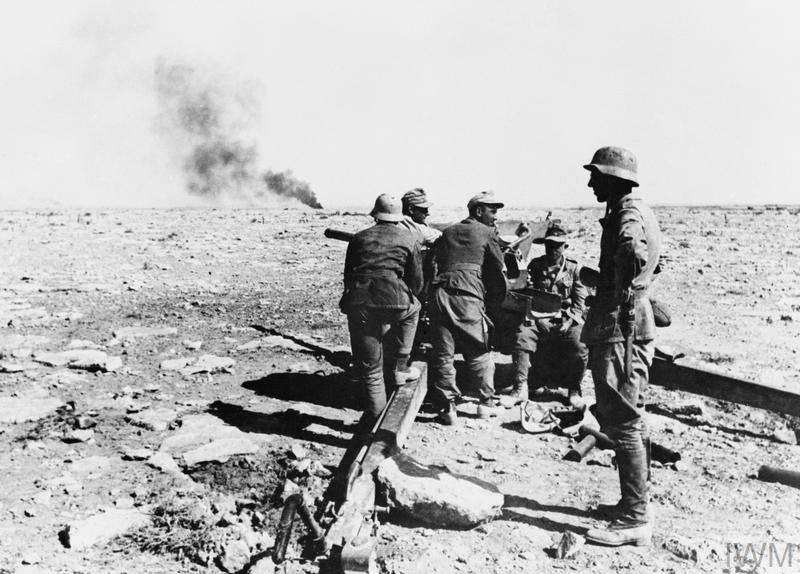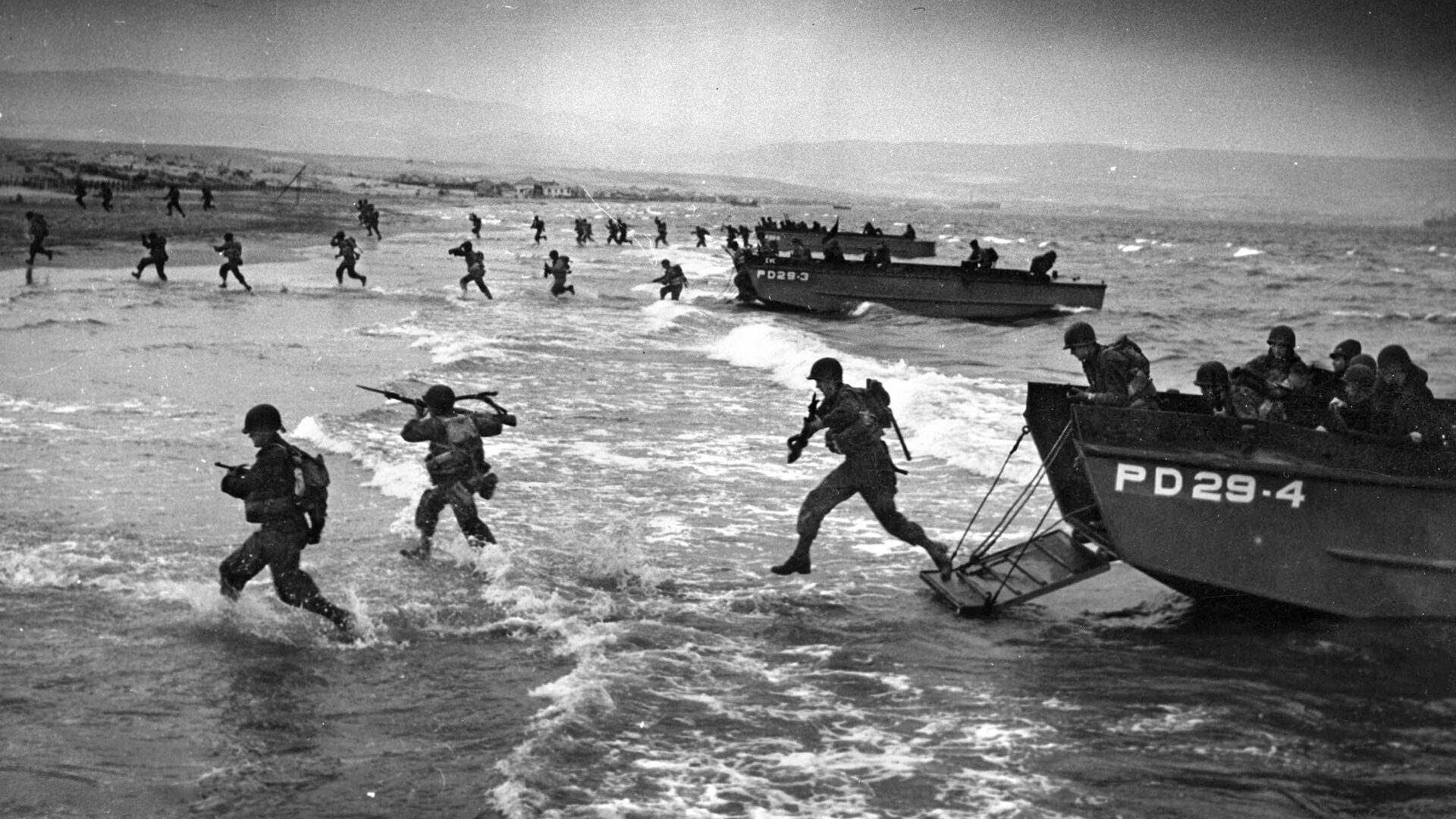Photo AI
Last Updated Sep 26, 2025
German Intervention in North Africa Simplified Revision Notes for Leaving Cert History
Revision notes with simplified explanations to understand German Intervention in North Africa quickly and effectively.
475+ students studying
German Intervention in North Africa
The German involvement in North Africa was primarily to support Italy's faltering campaign and to secure strategic interests in the region. This campaign, which unfolded from 1941 to 1943, saw the deployment of the Afrika Korps, led by General Erwin Rommel, also known as the "Desert Fox."
Italian Struggles and German Intervention
- Italian Campaign: under Benito Mussolini, Italy sought to expand its empire in North Africa by invading British-controlled Egypt from their colony in Libya. However, the Italian forces quickly encountered difficulties, facing strong British resistance and suffering significant defeats.
- German Support: In response to the Italian setbacks, Hitler decided to send the Afrika Korps to North Africa in February 1941 to bolster the Italian campaign and protect Axis interests.

The Afrika Korps and Rommel's Leadership

- Afrika Korps Formation: The Afrika Korps consisted of the 5th Light Division and the 15th Panzer Division, among other units. They were equipped with tanks, artillery, and mechanised infantry, well-suited for desert warfare.
- Erwin Rommel: Rommel quickly gained a reputation for his bold and innovative tactics, earning the nickname "Desert Fox." His leadership revitalised the Axis efforts in North Africa.
Key Battles and Campaigns
Operation Compass
- Prior to German intervention, the British launched Operation Compass (December 1940 - February 1941), which dealt a severe blow to the Italian forces, capturing large numbers of troops and equipment.
Battle of Gazala
- In May-June 1942, Rommel led a successful offensive against the British, culminating in the capture of Tobruk.
- This victory was a significant morale booster for the Axis and a personal triumph for Rommel.

First and Second Battles of El Alamein
- The First Battle of El Alamein (July 1942) halted the Axis advance towards the Suez Canal. The Second Battle of El Alamein (October-November 1942), led by British General Bernard Montgomery, marked a decisive turning point.
- The British Eighth Army severely defeated the Afrika Korps, forcing them into a prolonged retreat.
Strategic Importance and Impact
- Control over North Africa was crucial for both the Axis and the Allies. For the Axis, it meant potential control of the Suez Canal, vital for maintaining supply lines to the Middle East and the oil-rich regions. For the Allies, securing North Africa was a stepping stone to launching invasions of Southern Europe.
- The vast distances and harsh desert environment posed significant logistical challenges for both sides. The Axis forces struggled with extended supply lines, which were frequently targeted by Allied air and naval forces.
Final Stages and Outcome
- Operation Torch: In November 1942, the Allies launched Operation Torch, an amphibious invasion of French North Africa. This operation opened a new front and placed additional pressure on the Axis forces.
- By May 1943, after a series of defeats and the effective Allied encirclement, the remaining Axis forces in North Africa surrendered. Over 250,000 German and Italian troops were taken prisoner.

Cheat Sheet: Definitions of Bolded Terms
- Afrika Korps: A German expeditionary force led by General Erwin Rommel sent to North Africa to support Italian operations.
- General Erwin Rommel: A highly skilled German general known as the "Desert Fox" for his leadership in the North African campaign.
- Benito Mussolini: The Fascist leader of Italy who sought to expand his empire in North Africa.
- Operation Compass: A British military operation that significantly weakened Italian forces in North Africa before German intervention.
- Battle of Gazala: A major battle where Rommel's Afrika Korps defeated British forces and captured Tobruk.
- First and Second Battles of El Alamein: Crucial battles in North Africa where British forces, under General Montgomery, halted and then pushed back the Axis advance.
- Bernard Montgomery: The British general who led the Eighth Army to victory in the Second Battle of El Alamein.
- Operation Torch: The Allied invasion of French North Africa in November 1942 opened a new front against the Axis powers.
500K+ Students Use These Powerful Tools to Master German Intervention in North Africa For their Leaving Cert Exams.
Enhance your understanding with flashcards, quizzes, and exams—designed to help you grasp key concepts, reinforce learning, and master any topic with confidence!
564 flashcards
Flashcards on German Intervention in North Africa
Revise key concepts with interactive flashcards.
Try History Flashcards61 quizzes
Quizzes on German Intervention in North Africa
Test your knowledge with fun and engaging quizzes.
Try History Quizzes29 questions
Exam questions on German Intervention in North Africa
Boost your confidence with real exam questions.
Try History Questions27 exams created
Exam Builder on German Intervention in North Africa
Create custom exams across topics for better practice!
Try History exam builder117 papers
Past Papers on German Intervention in North Africa
Practice past papers to reinforce exam experience.
Try History Past PapersOther Revision Notes related to German Intervention in North Africa you should explore
Discover More Revision Notes Related to German Intervention in North Africa to Deepen Your Understanding and Improve Your Mastery
96%
114 rated
The Second World War 1939-45
The First Months of War - Invasion of Poland 1939 and a Phoney War
277+ studying
186KViews96%
114 rated
The Second World War 1939-45
Invasion of Denmark and Norway, April 1940
388+ studying
196KViews96%
114 rated
The Second World War 1939-45
Invasion and Fall of France + Dunkirk
402+ studying
182KViews96%
114 rated
The Second World War 1939-45
Operation Sealion, Battle of Britain & Battle of the Atlantic
402+ studying
197KViews